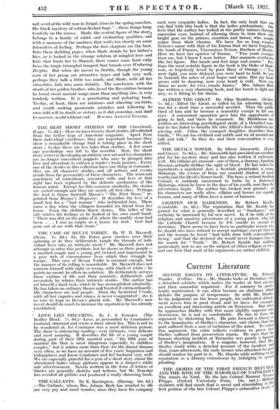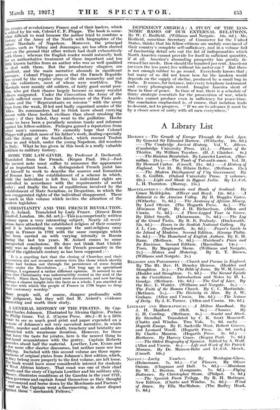THE ARMIES OF THE FIRST FRENCH REP1131•1(
this armies of revolutionary France and of their leaders, which is edited by his soh, Colonel C. F: Phipps. The book is-some- what difficult to read because the author tried to combine a tistory of the Army of the North with biographies of the future Marshals of Napoleon. Moreover, the principal actions, such as Vahny and Jemmapes, are too often slurred over on the ground that other writers had dealt exhaustively with them ; whereas the English reader would naturally look for an authoritative treatment of these important and too little known battles from an author who was so well qualified to deal with them. But the introductory chapters are excellent, and the main narrative abounds in significant passages. Colonel Phipps proves that the French Republic was saved by the regular army of the old monarchy and not by the volunteers, most of whom were worthless. The Marshals were mainly old soldiers, of fairly good social posi- tion, who got their chance largely because so many royalist officers emigrated. Under the Convention the Army of the North suffered more from the interference of the Paris poli- ticians and the Representants en mission" with the army than from the weak, ill-led and badly organized armies of the Allies. Its commanders had to think more about currying favour with these foolish civilians than about crushing the enemy; if they failed, they went to the guillotine. Hoche seems to have been a peculiarly noxious toady and informer against his fellow-soldiers. Pichegru gained a reputation from other men's successes. We earnestly hope that Colonel Phipps will publish more of his father's work, dealing especially with the Army of the South-East, which rescued Toulon from us and which, under the young Napoleon, did wonders in Italy. What he has given in this book is a really valuable addition to military history.































































 Previous page
Previous page